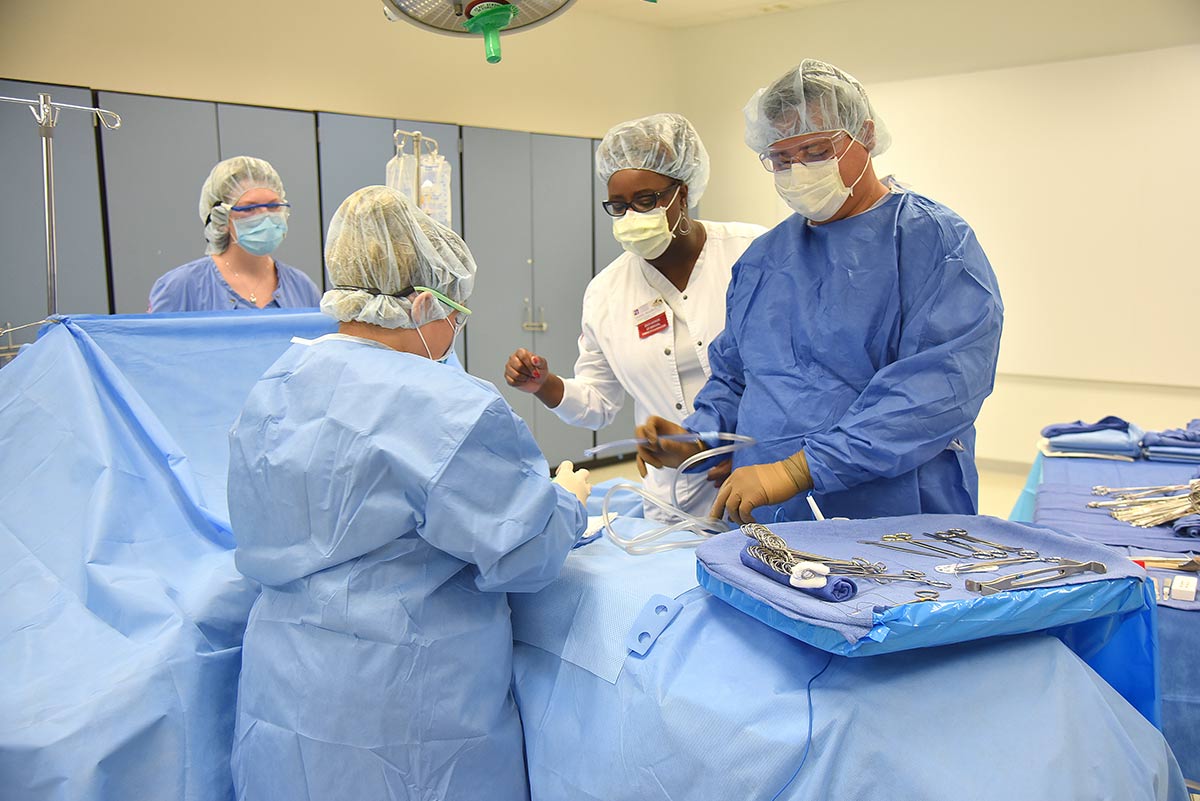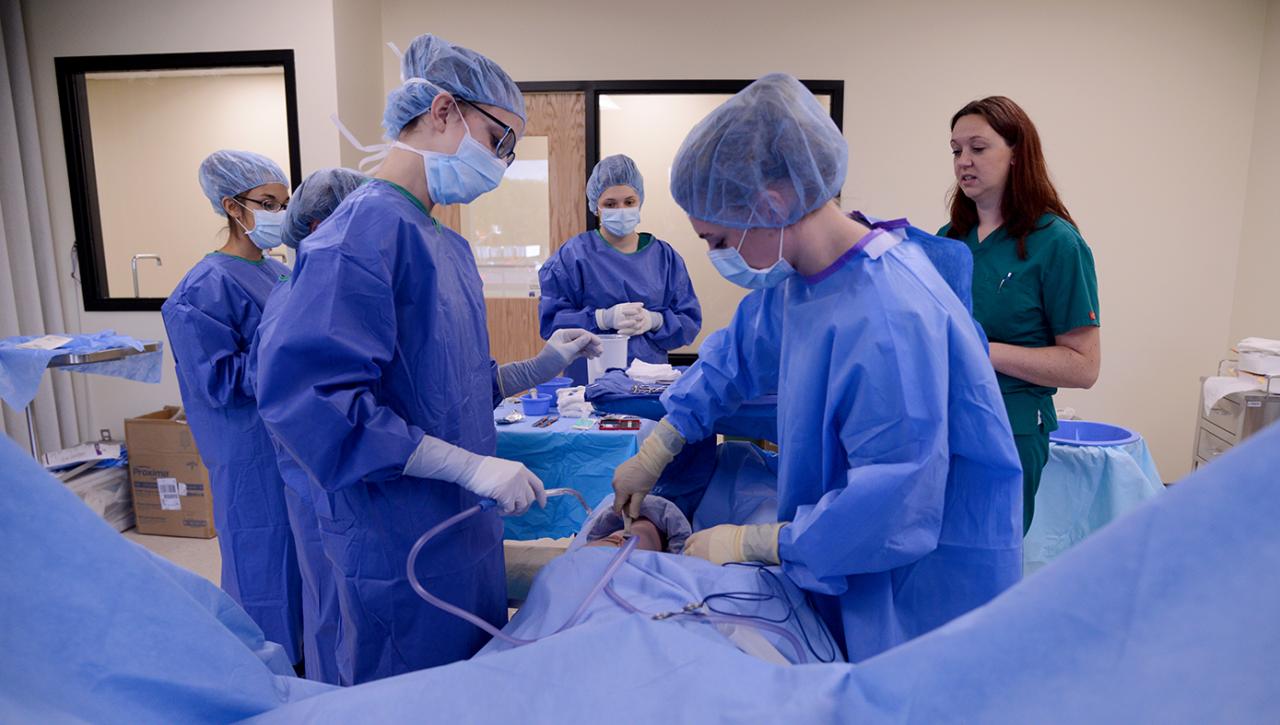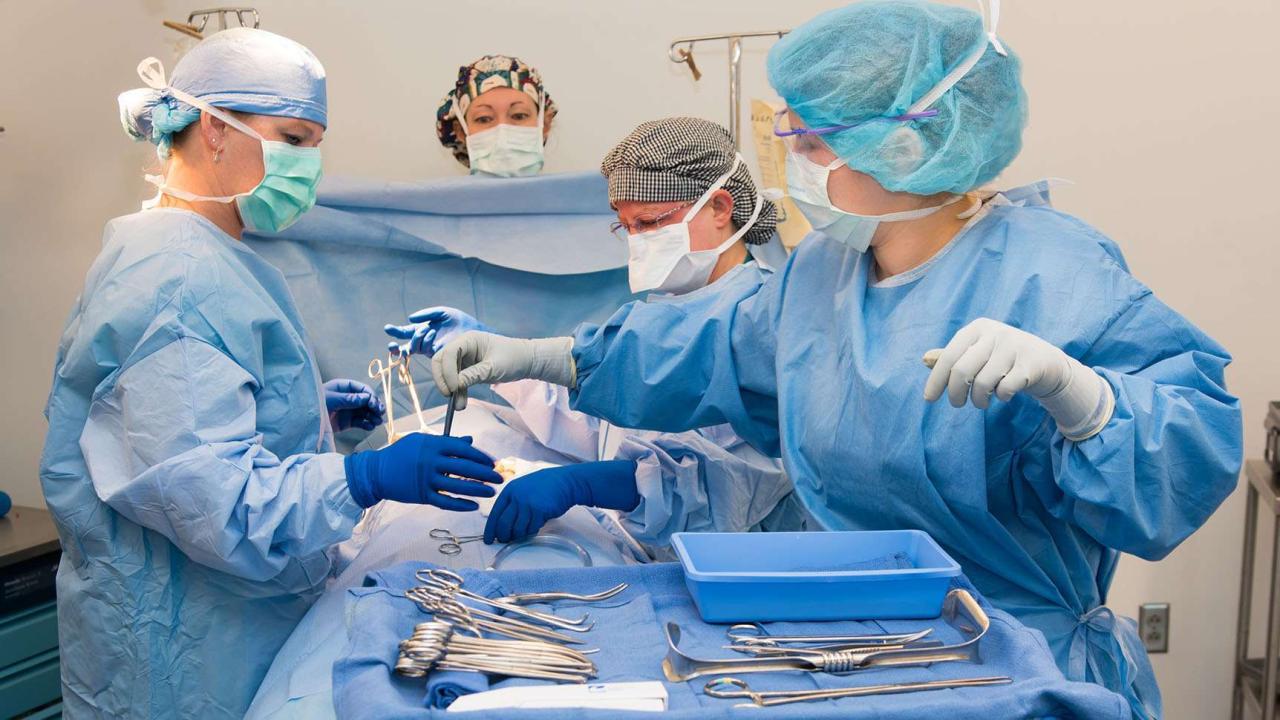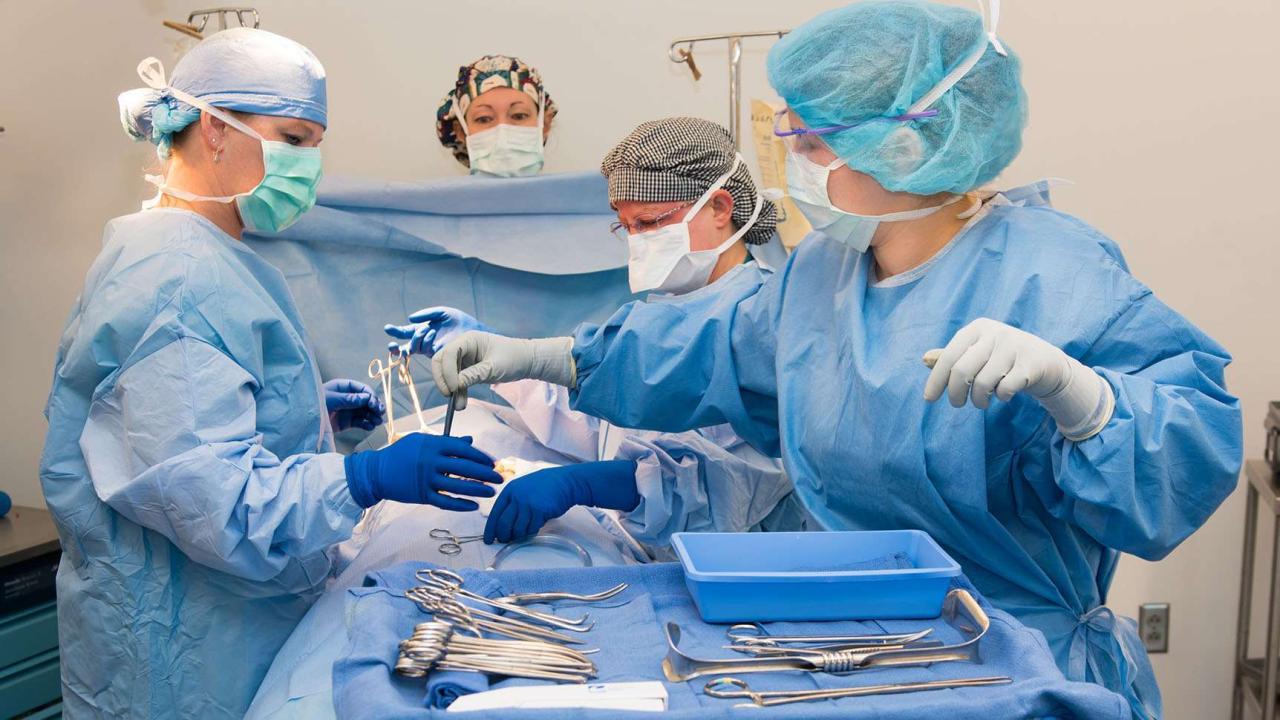Accredited surgical tech programs near me with clinical rotations offer a fantastic pathway into a rewarding healthcare career. This guide dives into finding the right program for you, exploring everything from accreditation bodies and curriculum details to clinical rotation experiences and career prospects. We’ll help you navigate the specifics of tuition, program length, and the essential skills you’ll gain, ensuring you’re well-prepared for a successful future as a surgical technologist.
We’ll compare different programs, highlighting their unique strengths and helping you make an informed decision. Understanding the clinical rotation component is crucial, as it’s where you’ll put your classroom learning into practice. We’ll also discuss the job market outlook and potential salary expectations, so you can confidently plan your next steps. Let’s get started on your journey to becoming a skilled surgical technologist!
Finding Accredited Surgical Tech Programs
Locating an accredited surgical technology program is crucial for a successful career. Accreditation ensures the program meets specific educational standards, increasing your chances of licensure and employment. This section will guide you through finding accredited programs near you, providing essential details to aid your decision-making process.
Accredited Programs within 50 Miles

The following table lists accredited surgical technology programs within a hypothetical 50-mile radius. Remember to replace this example data with your own research based on your specific location. Accreditation bodies vary; their significance lies in their rigorous standards ensuring program quality and graduate preparedness.
| Name | Location | Contact Info | Accreditation Body |
|---|---|---|---|
| Example Program A | Anytown, USA | (555) 123-4567 | Accrediting Bureau of Health Education Schools (ABHES) |
| Example Program B | Neighborville, USA | (555) 987-6543 | Commission on Accreditation of Allied Health Education Programs (CAAHEP) |
| Example Program C | Springfield, USA | (555) 555-5555 | ABHES |
ABHES and CAAHEP are prominent accrediting bodies. ABHES accreditation demonstrates compliance with nationally recognized standards for healthcare education. CAAHEP, often in conjunction with the American Association of Surgical Technologists (AST), ensures programs meet rigorous criteria for surgical technology education, emphasizing both theoretical knowledge and practical skills.
Tuition and Program Duration Comparison
Understanding the financial commitment and time investment is essential. The following table compares tuition fees and program length for the example programs.
| Name | Tuition Fees (Estimate) | Program Duration |
|---|---|---|
| Example Program A | $15,000 | 18 months |
| Example Program B | $18,000 | 2 years |
| Example Program C | $16,500 | 12 months |
Clinical Rotation Aspects: Accredited Surgical Tech Programs Near Me With Clinical Rotations

Clinical rotations are a cornerstone of surgical technology education. They provide hands-on experience in real-world surgical settings, bridging the gap between theory and practice.
Finding accredited surgical tech programs near you with clinical rotations is key to a successful career. It’s all about hands-on experience, and you’ll want to be sure the program is top-notch. For a completely different kind of injury, check out this news story about a hockey player: Canucks: Dakota Joshua leaves game with apparent leg injury.
Back to surgical tech programs, remember to look at the program’s placement rate – that’s a good indicator of how well it prepares students for the field.
Clinical Rotation Experiences
Typical clinical rotations expose students to a diverse range of surgical specialties and procedures. The intensity and duration of rotations vary across programs, but all aim to build competency and confidence.
So you’re looking for accredited surgical tech programs near you with clinical rotations? That’s awesome! Finding a good program is key, and remember to prioritize hands-on experience. It’s a demanding field, and you might even need a break sometimes to consider health risks like those highlighted in this article: Putting a cancer warning on alcohol is overdue, doctors say , which reminds us of the importance of overall well-being.
Anyway, back to surgical tech programs – good luck with your search!
- Exposure to various surgical specialties (e.g., general surgery, orthopedics, cardiovascular surgery).
- Hands-on participation in surgical procedures under the supervision of experienced surgical technologists.
- Development of sterile technique and surgical instrument knowledge.
- Exposure to different types of surgical equipment and technologies.
Clinical Rotation Settings
Rotations typically occur in a variety of healthcare facilities:
- Hospitals (general and specialized)
- Ambulatory surgical centers
- Physician’s offices
Comparison of Clinical Rotation Structures
Program A might emphasize a longer, more comprehensive rotation in a single hospital, while Program B might offer shorter rotations across multiple facilities, providing exposure to a broader range of settings and surgical specialties. Program C might integrate clinical rotations throughout the program rather than concentrating them in a single block.
Essential Skills and Knowledge Gained

Clinical rotations are vital for acquiring essential skills and knowledge.
- Sterile technique and aseptic practices
- Surgical instrument identification and use
- Surgical case preparation and setup
- Patient care and safety procedures
- Surgical equipment operation and maintenance
- Teamwork and communication skills
Program Curriculum and Structure
The curriculum and structure of surgical technology programs vary, but all aim to equip graduates with the necessary skills and knowledge for a successful career. This section compares the curricula of three example programs.
Comparative Curriculum Table
This table provides a hypothetical comparison. Actual curricula should be verified directly with each program.
| Program | Core Courses | Elective Courses | Practical Training |
|---|---|---|---|
| Example Program A | Anatomy & Physiology, Microbiology, Surgical Procedures, Sterile Techniques | Advanced Wound Care, Surgical Instrumentation | Extensive hospital rotations, simulated surgeries |
| Example Program B | Surgical Anatomy, Microbiology, Pharmacology, Surgical Procedures | Surgical Technology Management, Advanced Surgical Techniques | Varied rotations in different hospital departments |
| Example Program C | Anatomy & Physiology, Medical Terminology, Surgical Principles, Sterile Processing | Endoscopy, Cardiovascular Surgery Techniques | Concentrated clinical experience in a single surgical center |
Teaching Methodologies
Program A may primarily utilize lectures and hands-on labs, while Program B might incorporate more simulation-based training and online learning modules. Program C could focus on a mentorship-driven approach, with experienced surgical technologists guiding students during clinical rotations.
Admission Requirements

Admission requirements vary. Program A might require a high school diploma or GED and a minimum GPA. Program B might require prior healthcare experience, while Program C might necessitate specific prerequisite courses.
Skill Progression, Accredited surgical tech programs near me with clinical rotations
A typical program starts with foundational knowledge in anatomy, physiology, and sterile techniques. Students then progress to learning surgical instrument identification, case setup, and assisting in basic procedures. As the program advances, students gain experience in more complex surgical specialties and procedures, culminating in proficiency in surgical assisting techniques.
Closing Summary
Choosing the right accredited surgical tech program is a significant step towards a fulfilling career. By carefully considering factors like accreditation, clinical rotation opportunities, curriculum, and career support, you can make a well-informed decision that aligns with your goals and aspirations. Remember to thoroughly research each program, reach out to current students or alumni, and don’t hesitate to ask questions.
Your future in surgical technology awaits – make it a successful one!
Finding accredited surgical tech programs near you with clinical rotations is crucial for hands-on experience. Just like in hockey, where the article Why timing is key consideration in potential Jonathan Toews NHL highlights the importance of seizing opportunities, the timing of your application to these programs is key to securing a spot. So, research programs carefully and apply early to boost your chances of a successful career.
Question Bank
What is the difference between an associate’s and a bachelor’s degree in surgical technology?
Associate’s degrees are generally shorter (2 years) and focus directly on surgical technology skills. Bachelor’s degrees (4 years) may offer a broader education including additional science courses or management training, potentially leading to advanced roles.
How long does it take to complete a surgical tech program?
Program lengths vary, but most associate’s degree programs are completed in around 18-24 months.
Are there financial aid options available?
Yes, many programs offer financial aid options such as federal grants, loans, and scholarships. Check with individual programs for specific details.
What kind of licensing or certification is required?
Licensing requirements vary by state. Many states require certification through organizations like the NBSTSA (National Board of Surgical Technology and Surgical Assisting).
